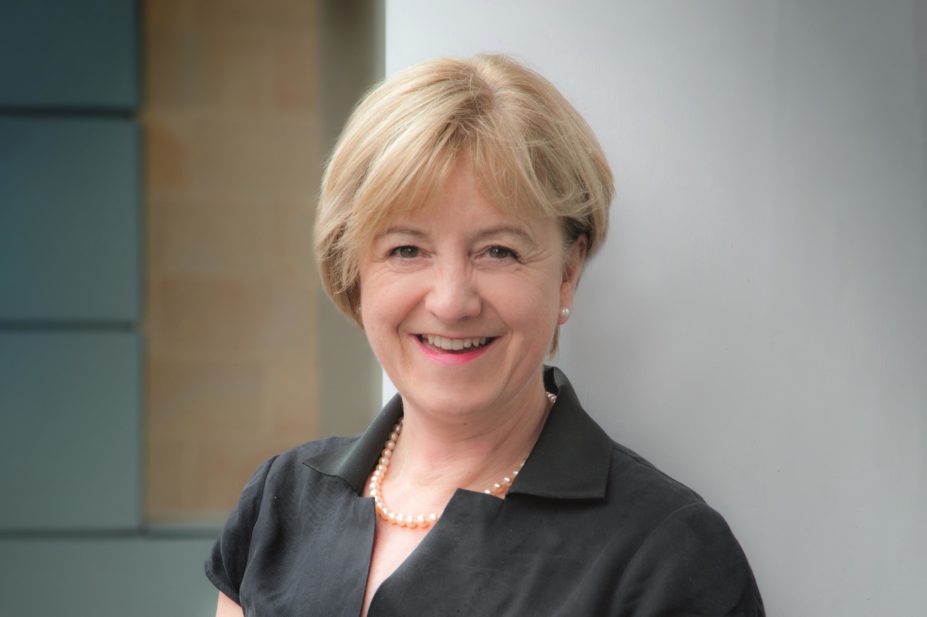
Royal Pharmaceutical Society
Aileen Bryson, practice and policy lead for the Royal Pharmaceutical Society (RPS) Scotland, gave an overview of the Falsified Medicines Directive (FMD) to delegates at the Hospital Pharmacy Europe LIVE conference on 21 November 2017.
Speaking at the event, which was held in London’s Olympia Conference Centre, Bryson explained that the RPS had worked with the Medicines and Healthcare Products Regulatory Agency (MHRA) and the EU Commission to ensure the directive was fit for purpose in the UK.
As a consequence, the directive is now accompanied by a delegated act which allows for medicines packs to be split, and for re-commissioning to take place within ten days as opposed to the original 72-hour window.
But the most important part of the delegated act for hospitals, Bryson said, was that the commission now recognises the NHS, and its individual hospitals, clinics and care settings, as a single entity.
Because of this, medicines authentication will be allowed to take place at a central point within a hospital trust, meaning that medicines can then be moved around within that trust, removing the need for every medicine-handling part of the NHS to do their own decommissioning.
While some of the practicalities are still being worked out by the MHRA, Bryson said the directive is proceeding as planned, regardless of Brexit.
“FMD is a way of working between countries. It is intended to improve the patency of the supply chain from manufacture right through to patients,” she said, adding that if the UK did not adopt this way of working, and counterfeiting was to increase in future, then “the UK would be the weak link in the chain”.
On 29 November 2017, NHS Improvement and Specialist Pharmacy Service published a frequently asked questions document, Secondary care services and the Falsified Medicines Directive (
FMD)
, which addresses some concerns about how FMD will operate in the NHS.
Falsified Medicines Directive
The Falsified Medicine’s Directive (FMD), which comes fully into force in February 2019, introduces EU-wide legislation to help prevent counterfeit prescription medicines entering the pharmaceutical supply chain. “Falsified” covers not only counterfeit medicines, but also false information about a medicine’s source. FMD will not cover non-prescribed medicines, with the single exception of omeprazole.
All medicines packs will be tamper-proof and will feature a 2-D barcode, as well as a manufacturer product code, a randomised unique serial number, batch number and expiry date.
Since 2011, the Royal Pharmaceutical Society and other stakeholders have been acting to ensure that the FMD will function in accordance with UK law, in a way that ensures patient safety, whilst minimising disruption to existing pharmacy practise.
The RPS has been acting on FMD since 2011, when it set up a multidisciplinary, cross-sectorial, GB-wide working group to develop policy. Later, in July 2014, the Society hosted and chaired the first FMD stakeholders networking meeting, at which 13 countries were represented by 100 delegates. At this meeting, implementation challenges for FMD were discussed, and presentations from the three main software providers were made.
Specific features of FMD in the UK lobbied for and achieved by the RPS and other stakeholders include:
- Extension of the originally-proposed two-day window for scanned products that are not collected by a patient to be returned to stock. This has been increased to ten days. Under FMD medicine not collected within the window will have to be destroyed, so extending the time limit reduces wastage.
- Agreement on the form of the European Stakeholder Model, which lays out a EU-wide format for how medicines can be verified, and on the European Medicines Verification System (EMVS), which guarantees authenticity from manufacturing to dispensing (the “end-to-end” system)
- Inclusion of human readable data alongside the 2-D barcode, so that pharmacists can continue to help patients if scanners break down or if the barcode is damaged.
- Full repackaging of imported medicines, rather than addition of new barcodes to existing packaging. Multiple barcodes could result in incorrect barcodes being scanned, triggering a false exceptional event.
- Greater flexibility offered to hospitals on the timing of medicines decommissioning. FMD requires medicines to be decommissioned at the point of dispensing. In hospitals – particularly in A&E, and where single doses are administered – this isn’t practical. Following lobbying, hospitals (unlike community pharmacies) will be able to decommission upon delivery, and then store medicines.
- Use of a single workstation. FMD originally required two, one for decommissioning and one for dispensing. RPS argued that this was unnecessary, costly, and increased the chance of technical failures disrupting processes. Successful lobbying led to agreement that all tasks can be performed on the Patient Medical Record (PMR) computer.
In addition, the RPS continues to call for the addition of safety information (including batch code, expiry dates and potential interactions) into the 2D barcode, alongside authentication data.
Your Society working for you.
Not a member? Become a member now
You may also be interested in
Long service of members

Membership fees 2022
